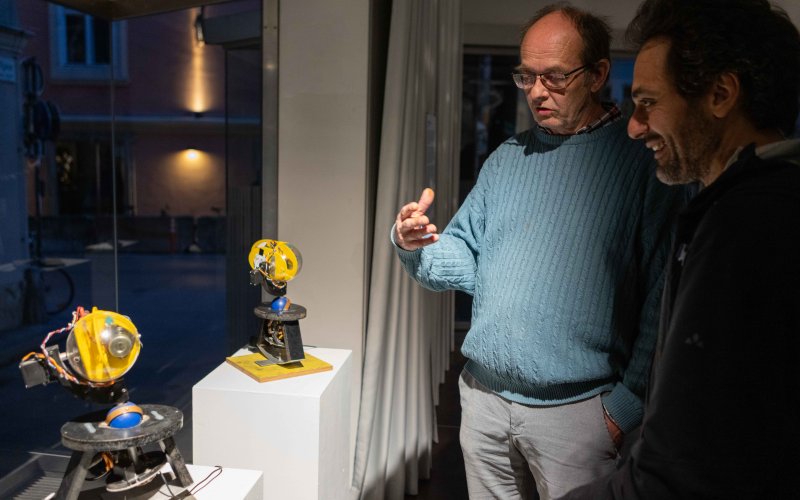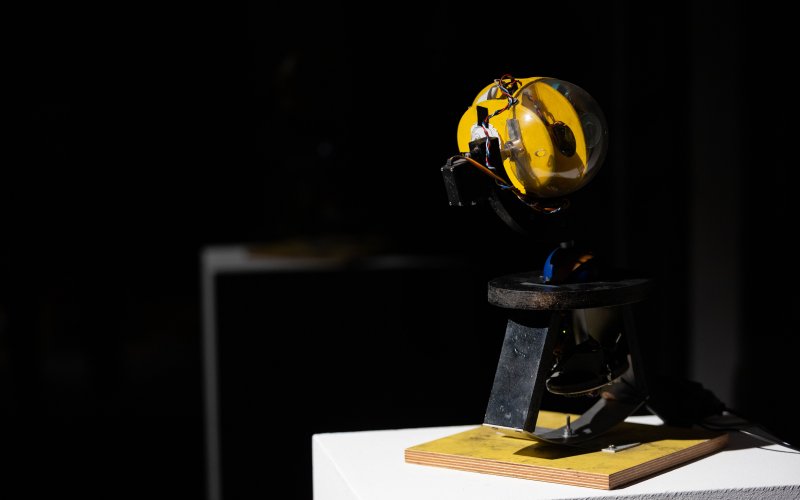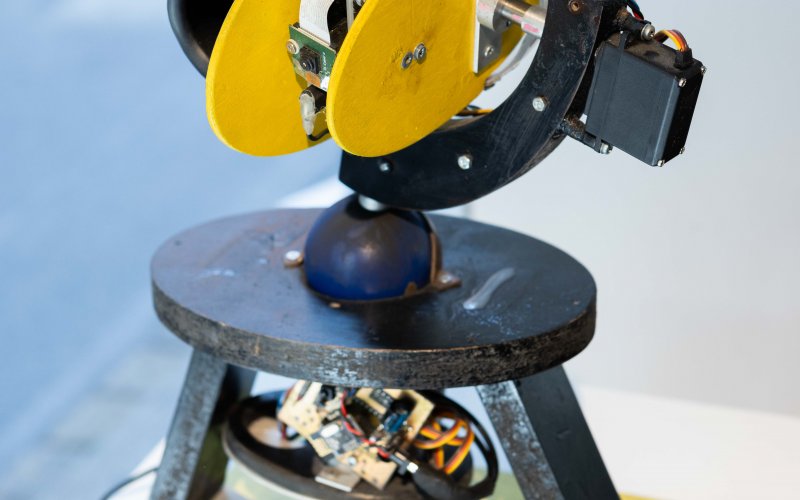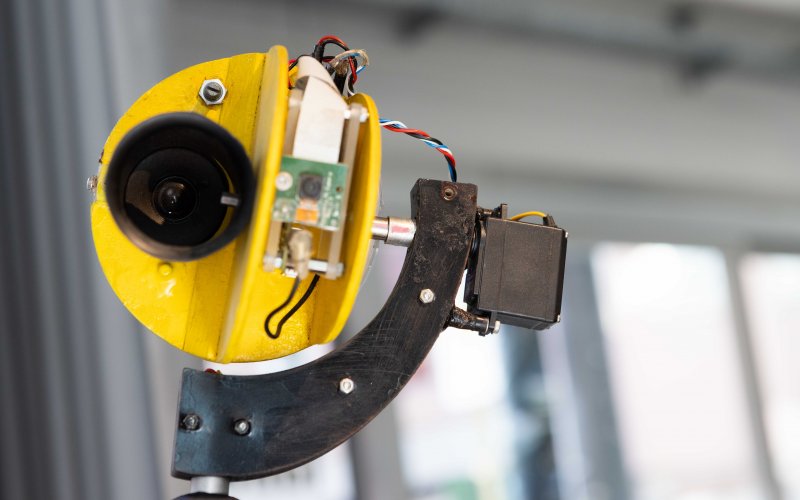Twin Speaks
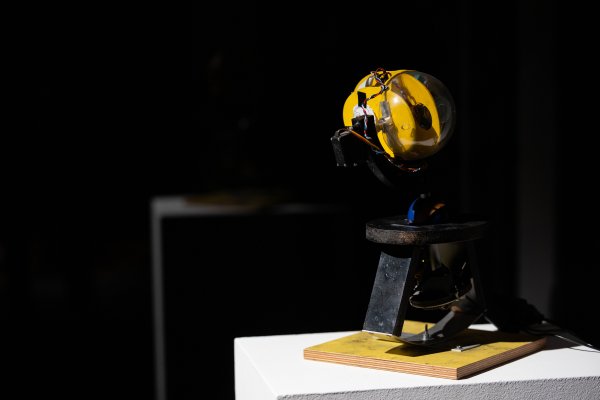
Twin Speaks is an artificial duo (represented by voice and gaze) in dialog. Conceived in 2018 and in development since then as an interactive generative structure that takes up the metaphors for human relationships, identities and roles that emerge in the process of communication. The title Twin Speaks refers to the television series Twin Peaks by director David Lynch, in which the feeling of magic is omnipresent.
The dialog in Twin Speaks is always a combination of movements and voices. Both are physical and therefore - for the entities of the duo - fused into one. (In general, dialog is an abstraction of the interpersonal relationship in which the parties involved, at best, become one with each other). Movement is complemented by a counter-movement, voice by a counter-voice. Of course, the voices can also merge into a song. Or merge into incoherent babbling.
Computer vision enables the machine to recognize the human face and follow it (personification of the subject by the machine). This opens up the space for potential communication between the two entities and the visitors. When an entity turns towards visitors, it does so in the form of a “gaze”. By looking at each other, they prove that they are separate beings. When they synchronize, they merge into one. When one follows the visitors and the other observes them, this is the gaze of the third (the “other”) on the situation. There are several variations, which makes for a good observational situation regarding the identities and roles that the parties - the artificial duo including the visitors - can take on.
There is something magical about the autonomy of artificial creatures. The object is recognized as a being with an identity. The next step would be to give it a name, like a pet.
The present study is still ongoing: it uses some random algorithms, jumps between basic movement positions, stochastic methods and more coherent moments of (a)synchronized patterns. Artificial intelligence (AI) would probably improve this kind of autonomy. But at some point it would become commonplace, the fascination, the magic would be gone. That time could be now. [Borut Savski]

